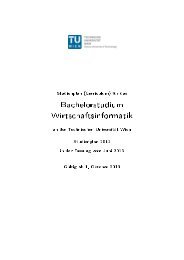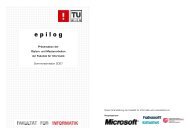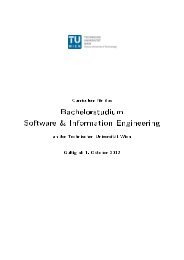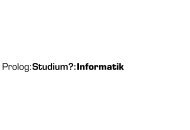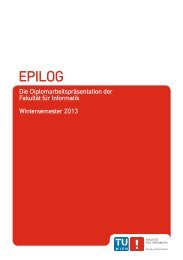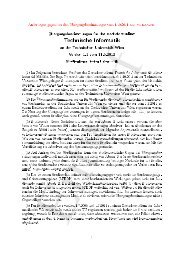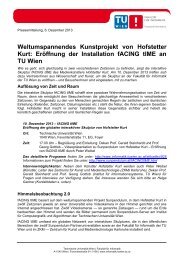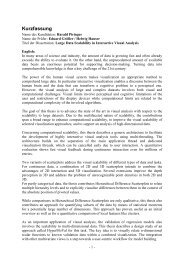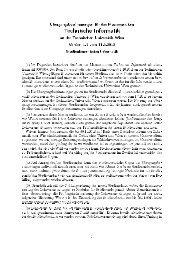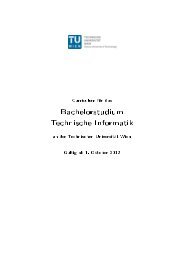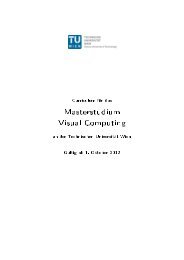Masterstudium Business Informatics - Fakultät für Informatik, TU Wien
Masterstudium Business Informatics - Fakultät für Informatik, TU Wien
Masterstudium Business Informatics - Fakultät für Informatik, TU Wien
Create successful ePaper yourself
Turn your PDF publications into a flip-book with our unique Google optimized e-Paper software.
• Input/Output modeling (Black Box modeling)<br />
• Discrete transfer functions and Markov models versus general nonlinear discrete<br />
models and classications of the models with respect to nonlinear properties and<br />
data availability<br />
• System dynamics, Forrester's modeling approach (industrial dynamics, system dynamics)<br />
sketched as qualitative and quantitative white-box modeling approach<br />
• Soft computing techniques<br />
• Cellular automata modeling: Modeling with spatial aspects and multidomain modeling<br />
by coupling cellular automata models with system dynamics models<br />
• Discrete event modeling: Statistical features and asynchronous time base modeling<br />
(time event oriented modeling) into modeling of discrete dynamical systems<br />
• Validation and identication: Procedures for model validation and algorithms for<br />
identication<br />
• Advanced modelled and simulation tasks comparing dierent modeling techniques<br />
• Complimentary modules as crash courses for modeling and simulation with MAT-<br />
LAB, Simulink, SimEvents, AnyLogic, and others (e.g., DSOL) and a review of<br />
mathematical algorithms (basics ODE solver, solutions of dierence equations)<br />
Expected Prerequisites: Medium knowledge in mathematical analysis and programming,<br />
basic knowledge in statistics and numerical algorithms.<br />
Teaching and Learning Methods and Adequate Assessment of Performance: The module<br />
is organized along lectures on modeling and simulation concepts, exercises on modeling<br />
and simulation examples with MATLAB, Simulink, Java, and AnyLogic using the webbased<br />
MMT E-Learning system to experiment with partly pre-implemented models to<br />
become familiar with model features and concepts by using personal notebooks, case<br />
studies, students' projects in groups on modeling and simulation.<br />
Courses of Module:<br />
6.0/4.0 VU Modeling and Simulation<br />
FMF/KBS - Knowledge-based Systems<br />
ECTS-Credits: 6.0<br />
Summary: This module oers an introduction into important concepts of knowledgebased<br />
systems like problem solving techniques, formalisms to represent knowledge, and<br />
corresponding deduction concepts. Students acquire systematic knowledge about the<br />
fundamental principles underlying knowledge-based systems, both from a theoretical<br />
and from a practical implementation side. Students continue to train their capabilities<br />
29



